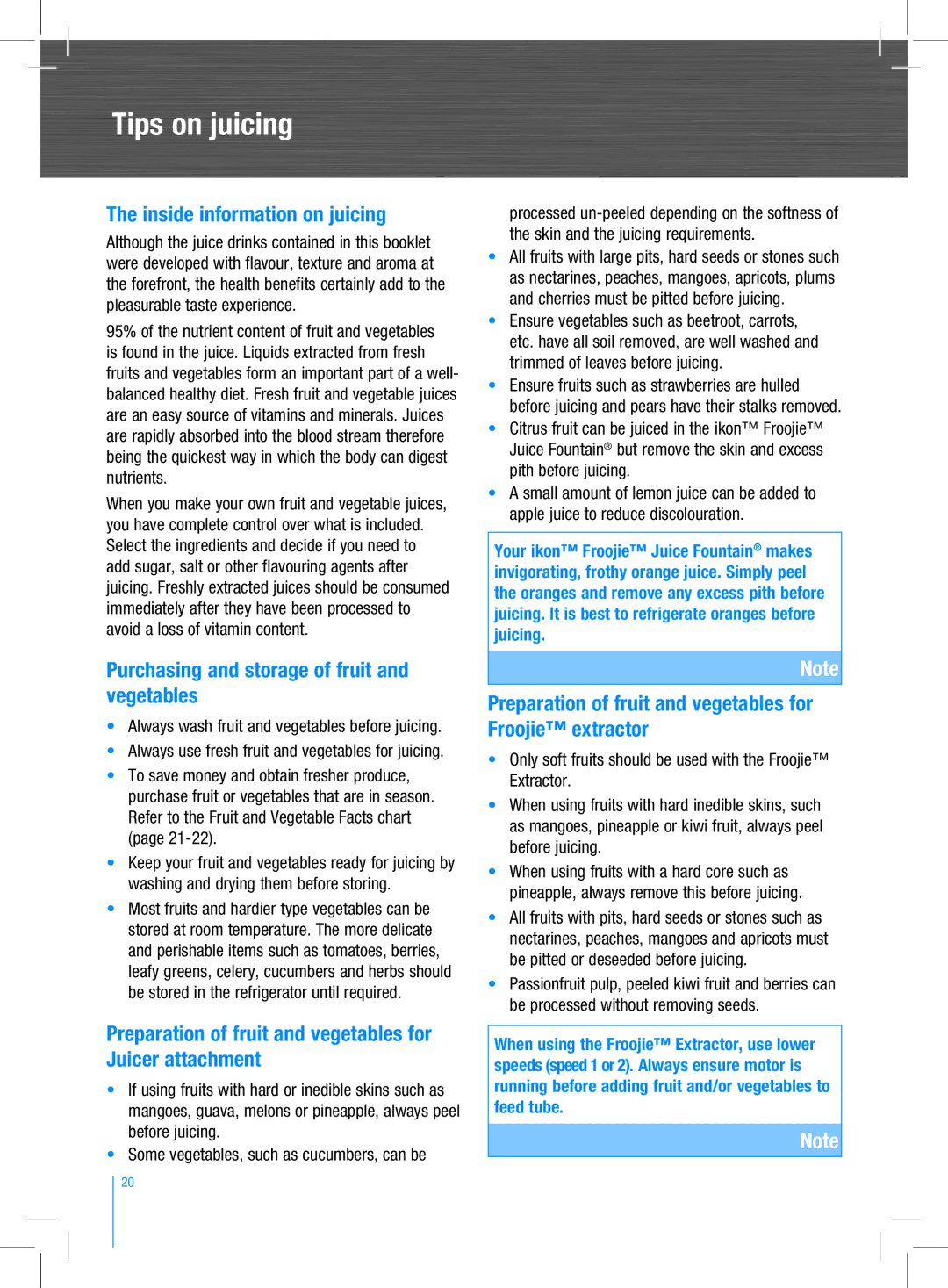BJE520 specifications
The Breville BJE520 is a premium juice extractor designed for those who seek both efficiency and quality in their juicing experience. Engineered with advanced features, the BJE520 stands out in the crowded market of juicers, making it a favorite among health enthusiasts and culinary aficionados alike.One of the standout features of the BJE520 is its Cold Spin Technology. This innovative system allows juice to be extracted at a high speed without generating excess heat, which can destroy sensitive vitamins and enzymes found in fresh fruits and vegetables. By ensuring minimal oxidation, the juice retains its nutritional integrity, giving users a healthier beverage option.
The extraction process is complemented by Breville’s unique Nutri Disc, which boasts a wide feeding chute. This feature allows whole fruits and vegetables to be juiced without extensive pre-cutting, saving time and effort in meal preparation. The extra-wide 3-inch feed chute can accommodate larger produce items like apples and cucumbers, making the juicing process more efficient.
Ease of use is a hallmark of the BJE520. The juicer is equipped with a simple control panel featuring several speeds, allowing users to adjust the juicing speed according to the type of fruit or vegetable being processed. The juicer’s sleek design is not only visually appealing but also functional, with a heavy-duty construction that ensures stability during operation.
Cleaning the Breville BJE520 is a breeze, thanks to its easy-to-assemble components and dishwasher-safe parts. This user-friendly design helps eliminate the daunting task of cleanup that often discourages people from juicing. Additionally, the juicer includes a built-in froth separator, ensuring a smooth and pure juice experience without unwanted froth.
Another characteristic of the BJE520 is its compact design, which means it can easily fit on kitchen counters without taking up too much space. It is both stylish and practical, catering to modern kitchen aesthetics while providing powerful juicing capabilities.
Overall, the Breville BJE520 is an exceptional juicer that combines cutting-edge technology with user-friendly features. Its Cold Spin Technology, wide feed chute, adjustable speeds, and easy maintenance make it an ideal choice for anyone looking to enhance their juicing routine. Whether you are a seasoned juicer or new to the world of fresh juices, the BJE520 offers everything you need to create delicious and nutritious beverages at home.

